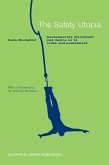This book provides an overview of recent government initiatives in the field of crime and punishment, reviewing both the policies themselves, the perceived problems and issues they seek to address, and the broader social and political context in which this is taking place. The underlying theme of the book is that a qualitative change has taken place in the politics of crime control in the UK since the early 1990s. Although crime has stabilised, imprisonment rates continue to climb, there is a new mood of punitiveness, and crime has become a central policy issue for the government, no longer just a technical matter of law enforcement. At the same time the politics of crime control have taken on a pronounced gender, race and age preoccupation. This book will be essential reading for anybody seeking an understanding of why crime and criminal justice policy have risen to the top of the political agenda.
Hinweis: Dieser Artikel kann nur an eine deutsche Lieferadresse ausgeliefert werden.
Hinweis: Dieser Artikel kann nur an eine deutsche Lieferadresse ausgeliefert werden.








